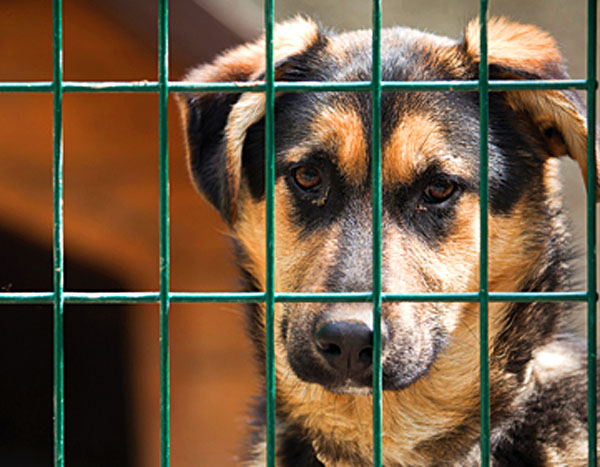RESCUE DOGS.

I have talked about rescue dogs throughout my site but as I know how many rescue dogs are out there and how popular they are I thought I would put my behavioural knowledge and experiences as a regular kennel volunteer to a large rescue centre to good use to give prospective owners some useful and helpful advice.
Most rescue centres out there do a great job finding new homes for dogs in their care and will take the time and effort to find the right sort of home for the dog in question. A good rescue centre should through day to day interactions, training (if required), behavioural observation, temperament testing, known history (old owners) and others have a good idea about a particular dogs temperament, issues and needs. A good rescue centre will also want to assess you, your family and your home before rehoming a dog with you. Most rescue dogs do have issues of some kind, some more than others and really it is the duty of the rescue centre to try and ensure that the right dog goes to the right home.
In my topic on which breed is best I mention specific breeds of dog that I would not recommend for the new, inexperienced owner and this list also applies to rescue dogs. If you are indeed to be a NEW or are an inexperienced owner then I would advice you to steer away from these breeds and any crosses or types of them mentioned in that topic, that does though as a new owner still leave many dogs open to you. Please have a read of the which breed is best section too, in fact all of them would be good.
Of course if you are an experienced owner, especially with taking on rescue dogs then hopefully all should be well.
Some rescue dogs may not be good around young children or other animals (many are) and one would hope that the rescue centre had found this out and would say so on the dogs notes, i.e. no young children, other animals etc. There will be some rescue dogs that will take a while to settle in to their new homes, possible suffering from being stressed out about being in those kennels, Staffies and their crosses are top of the list, though any dogs could be affected.Without a doubt there are many lovely, healthy dogs waiting for a new home in our rescue centres and all you have to do is find the right one for you, your family and your lifestyle.
So what to look for !
Well firstly you may have a certain type of dog in mind and if it is a pedigree dog then you may well be better of approaching a rescue centre that rescues that particular breed only. Most breeds have their own rescues and apart from maybe having the dog for you they will also be a good source of information about that particular breed so speak to them first. They will be able to tell you of any breed specific behaviours/traits and requirements for that breed and more specific information on dogs in their care. If for instance you really wanted a black lab then put Labrador rescue into google and contact them.
General rescue centres like the one I volunteer for generally have a lot more crosses in their dogs for rehoming though they do have some pedigree dogs too. Personally I have always had crosses and they have been great dogs but any dog can be a great dog for the right family. If you are to be a new dog owner then reading the other sections on my site will help you understand what a dog is all about as rescue dogs have the same canine requirements as other dogs and often due to a bad start in life a bit more but there is much satisfaction in giving a rescue dog a good home.
The most important thing to look for in a rescue dog is a good general temperament, you would like them to be OK with other dogs and people, especially children if you have them. If you have other animals in your household then being OK with other animals is on the list. Obviously dogs that are not good with children and other animals cannot go to a home with such but they will still make a lovely best friend for someone experienced who has none. A good reputable rescue centre will want to come round and assess that your property and your family is suituable for the dog in question. Do not take a dog from a so called rescue centre that you just ring up and ask for a dog, they say yes we have one for you and can drop it round, it could end in tears. Dogs that are overly nervous/fearful or super bold and excitable are not for the inexperienced. If you are an older person not able to do daily route marches then don't take on a dog that requires this. If you are a very house proud person then maybe a young dog is not for you. Bear in mind your circumstances and your lifestyle when looking for your new best friend, a dog will misbehave out of boredom and frustration if it's needs are not met, read my other sections on this site before setting out to get a dog.
If you think you have found the rescue dog for you make sure you get to take them out and about before you make the final decision. See for yourself what they are like around other dogs and people, how they react to the environment and any thing in it, how they react to strange or surprising stimulus (things). Hopefully the rescue centre will have land available for you to get them out and about and meet other dogs and people or somewhere for you to go, you need to be happy with things yourself. If you are really interested in a dog and the rescue centre thinks that you will be a good match then they will probably put that dog on a reserved list and then carry out checks on you, your family and your home. Make use of this time and have as many visits as possible to take the dog out and about to get a good feel about your prospective new best friend before things are finalised. Some rescue dogs have abandonment or bonding issues and you don't want to make things worse by taking home a dog and then having to return them later, so adding to their issues.
If you already have a dog or dogs and intend adding to the mix with a new rescue dog then try to get them together in a neutral environment to see how they get on. If things go badly then chances are they will be worse in your home environment.
Rescue centres will take a dog back in if things do not go well but it would be better for all concerned if you tried to get things right from the start, especially if the dog in question already has bonding, abandonment or trust issues. Any good rescue centres will take the time and effort to find the right home for the dogs in their trust.
Dogs of all ages can be found in rescue centres, though most in my experience are in the juvenile bracket, 10 weeks to two years, many having had a home that could not cope with their behaviour (often not the dogs fault), some will have been mistreated or abandoned, some the old owners may simply and obviously unavoidably have passed on, there can be many reasons for a dog ending up in a rescue centre.
In rescue centres there will be some dogs that were actually living as strays and personally I think these are the dogs that are most challenging in that they have had to fend for themselves, often for a considerable length of time, and will most likely be too much for the inexperienced to take on. These dogs are for the experienced and knowledgeable especially if they come from a more difficult breed (/which-breed-dog-or-crossbreed-is-best). Often dogs that were strays will be harder to house train and teach the basics, they will often not be good around other small animals as they had to sadly kill and eat things to survive when stray though in the right hands and home a good life for all is still possible.SO, if you are looking for a new four legged friend then there may well be just the dog waiting for you in one of your local rescue centres, just take the time and effort and work with the centre to find the right dog for you, your family, your experience and your home/lifestyle.
Why not have a read of my first book - Elmer no ordinary wolf, a realistic novel about a wolf called Elmer, his family and their life. My hope is that you will learn much about wolves and mother nature, coming to understand why man first thought to domesticate these amazing social animals to give us our best friend, the dog.
copyright 2013-22 Paul lindley
Topics
